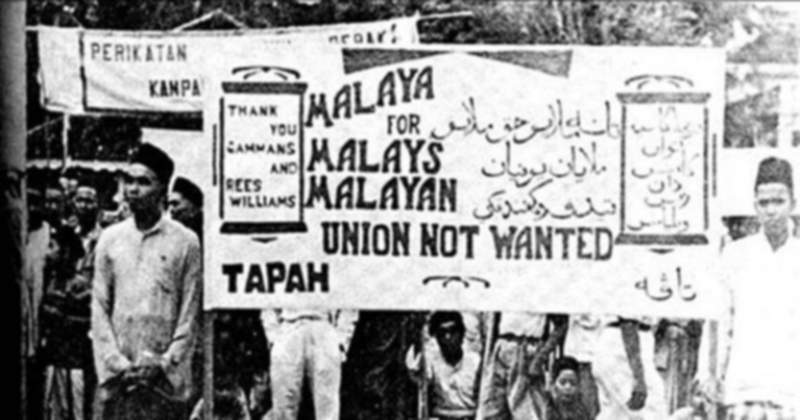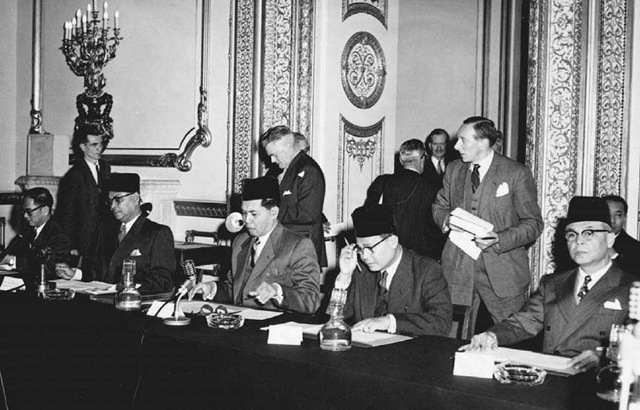UMNO HISTORY
UMNO was founded on the merger and agreement of various Malay organisations to work together for the Malay survival and interest.
Today, UMNO is recognised as the largest party which used to form the pillar of the Federal administration, with the most seats and representatives at the policy-making steering. As the most democratic and the oldest among developing nations, it is still a premier party and remains solid although it was faced with many challenges. Its principle for justice and policy of engagement are well-recognised and respected by many.
In confronting the Malayan Union waged by the British after the Second World War, these organisations have voluntarily dissolved themselves to pave ways for the founding of a single Malay party that will look after and champion their rights based on unison.
Under the British, all pro-Malay policy enacted before the WWII would be revised, hence forcing the Malays who were the indigenous people of the country to compete openly with the migrants. This was beyond their hope and expectation as under the previous British agreement they would be protected from the migrants’ threats, and an assurance that Malaya was a Malay country to be rule by the Malay Rulers.
The Malayan Union plan which was forced on them without any consultation came as a shock. If the Malays were fractionalised over local and regional sentiments, they now began to realise the situation, thus agreed to unite against Malayan Union. Their rise was a spontaneous action that motivated uniformity in fighting for their own cause.
The foundation of UMNO on May 11 1946 with Dato’ Onn Jaafar as its first leader was deemed as a catalyst to bring the Malays together in their quest for rights in politics and economy which began to elude them and instead benefitted the migrants.
Malay nationalism was at its low then due to many factors, among which were the multilateral society, oppression by the colonial power, the tendency of Malay to breakup, no political conscience and the economical ambience which satisfied them to live moderately.
The new spirit of nationalism was needed to safeguard the harmonic living of the indigenous or the original people of the country. Hence, any future planning or direction for the country will have to take into account all aspects of the Malays.
It was not a narrowed down nationalism as it had a far-reaching idealism to include the importance of building a multiracial country with integrated elements of unity and stability. At the infancy of its struggle for Independence, UMNO realised that no force must be imposed on others and their rights to domestic politics will be recognised. Efforts were made to form a multiracial political pact when Perikatan between UMNO-MCA was finally established in 1952 when both parties contested in Kuala Lumpur municipal elections. Their victory paved the way for Independence.
In preparing for the first general election in 1955, UMNO-MCA-MIC pact was inked to symbolise the multiracial cooperation. At the stewardship of Tunku Abdul Rahman Putra, Perikatan won with flying colours. This was a clear message to the colonial British that all races in Tanah Melayu came as one and were ready for Independence.
MEET OUR LEGISLATIVE
Our Elected
Representatives
Lorem ipsum dolor sit amet, consectetur adipisicing elit, sed do eiusmod tempor incididunt ut labore et dolore magna aliqua. Ut enim ad minim veniam, quis nostrud exercitation ullamco laboris nisi ut aliquip










